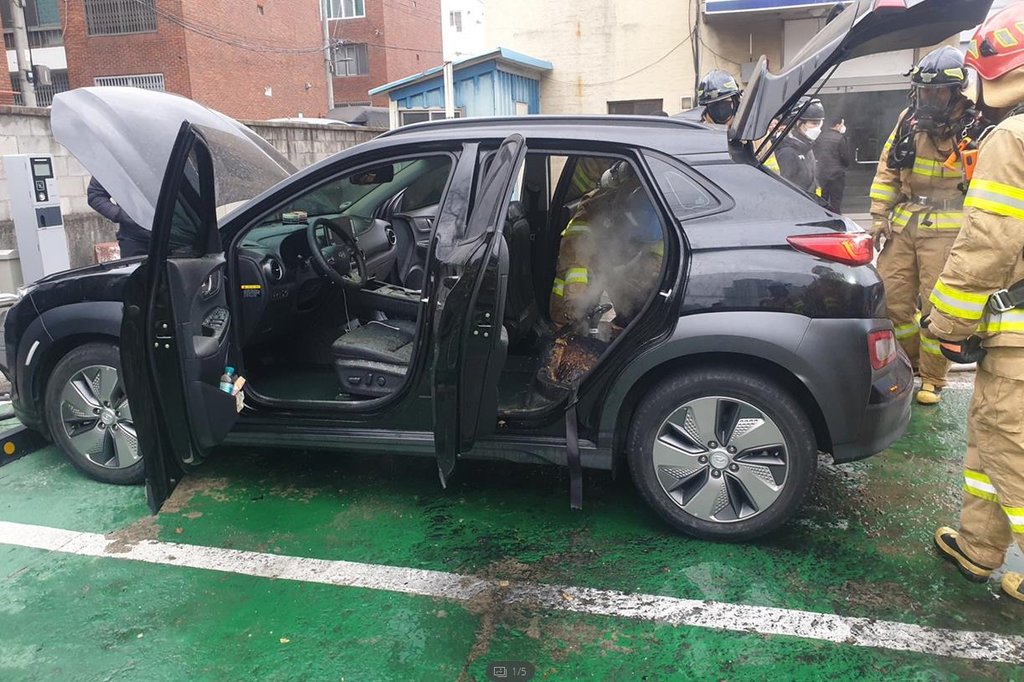Ministry of Land, Infrastructure and Transport “Possibility of fire due to the folding of the cathode tab inside the cell…not the final conclusion”
About 26,000 cars, including Kona, are recalled from the 29th… High voltage battery system replacement

(Daegu = Yonhap News) Reporter Kim Sun-hyung = On the 23rd at 4:11 pm, a fire of unknown cause broke out in the electric car Kona EV, which was being charged at a public electric car charger installed at a taxi company in Yucheon-dong, Dalseo-gu, Daegu. Firefighters dispatched are working on extinguishing. 2021.1.23[독자 송영훈 씨 제공, 재판매 및 DB 금지] [email protected]
(Seoul = Yonhap News) Reporter Kihoon Kim = Hyundai Motor Company[005380] According to an investigation by the Ministry of Land, Infrastructure and Transport, the cause of subsequent fires in Kona Electric Vehicles (EV) is likely to be an internal short circuit due to defective battery cell manufacturing (folding of the negative electrode tab).
The Ministry of Land, Infrastructure, and Transport announced on the 24th that it will voluntarily take corrective action (recall) after 26,000 production defects were found in 3 car models, including Kona electric cars manufactured and sold by Hyundai Motor Company.
The recall targets total 26,699 units, including 25,000 Kona EVs, 1,314 IONIQ electric vehicles (AE PE EVs), and 302 Eleccity (electric buses and LK EVs).
According to the Ministry of Land, Infrastructure and Transport, some of the high-voltage batteries initially produced at LG Energy Solutions’ Nanjing Plant in China (September 2017-July 2019) among the batteries used in these three vehicle models have been confirmed that there is a possibility of a fire due to internal short circuit due to cell manufacturing failure.
Accordingly, these three models will begin corrective action (recall) to replace all of the high voltage battery system (BSA) from the 29th of this month.
The Korea Transportation Safety Authority’s Automobile Safety Research Institute (KATRI) has conducted fire reproducibility tests along with detailed investigations of high-voltage batteries collected as recalls from October last year to recent years.
The Ministry of Land, Infrastructure and Transport explained that it has confirmed the possibility of a fire due to misalignment inside the cell as a result of a detailed investigation of battery disassembly.
However, he added that the experiment is continuing because the fire reproduction test cannot directly confirm this.
The Ministry of Land, Infrastructure and Transport reported that Hyundai Motor Company and LG Energy Solutions have not completed the defect investigation by the Automobile Safety Research Institute, but have decided to replace the existing high voltage battery system (BSA) with improved products to protect consumers.
Unauthorized reproduction-redistribution prohibited>
2021/02/24 13:47 sent
